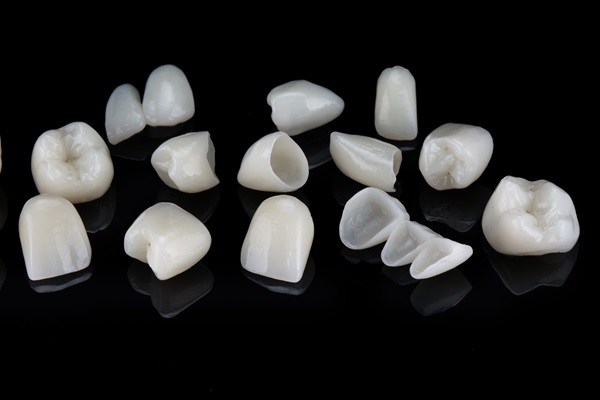Dental Crowns To Preserve Your Tooth Following a Root Canal

Curious about whether you need a dental crown after a root canal? Read on to learn more. Many patients believe that a root canal is a painful procedure and therefore avoid it. In cases of seriously damaged or infected teeth, root canals are the last resort to prevent an extraction. After the root canal treatment, the affected tooth needs adequate support, like a dental crown or filling to restore its strength and function.
When is a dental crown necessary after a root canal?
A tooth that requires a root canal is already weak due to the issue that forced the treatment; therefore, it must be shielded from extra harm. Also, the nerves and blood vessels are removed from the tooth pulp during the root canal process. This can make the tooth more vulnerable to fractures or damage. A dental crown acts like a cap to stop a tooth from further harm and decay. A crown protects the structural integrity of the teeth so that they can function naturally.
The position of the treated tooth is often the major determinant of whether or not a tooth has to be protected with a crown. The front teeth have less bite force than the back teeth, so composite bonding can be used to restore them after a root canal. The rear teeth grind food and are frequently subjected to tremendous bite forces. The dental crown protects the tooth against biting forces, enhances its appearance, and shields it from acids and bacteria in the mouth.
Restore natural function and aesthetics
The root canals are usually used to preserve a tooth that would otherwise require an extraction. Deep decay might make it hard to eat, talk, or brush the teeth correctly since those actions can result in pain or discomfort. The teeth might become very brittle from the root canal treatment, and this can make these issues even worse.
A dental crown can restore the tooth to its original state. The crown offers the strength and protection to avoid brittleness and enables patients to eat everything they want without limit. Beyond restoring the function of the tooth, dental crowns also improve a tooth’s aesthetic appeal. Dental crowns can be matched to the size and color of the rest of the teeth for a complete smile.
Stops further infections
A dental crown protects the tooth from future infections and stops bacteria from entering the tooth. Without a crown, the tooth becomes more susceptible to infection and also might require root canal re-treatment. Crowns act as a shield against re-infection and enhance long-term oral health.
Dental crowns are highly durable. The production material can be composite resin, porcelain, or ceramics, but it can also be made of metals like gold. With adequate care, they can last 10 to 15 years, depending on the material used for the crown.
Reduced pain and sensitivity
Root canals might become infected by trauma to the tooth or by serious decay, and can be very painful. Root canal treatments involve removing the cause of the pain and all its nerve endings. Contrary to popular opinion, patients will experience minimal pain during the procedure since it is performed under local anesthesia. Once the dental crown is in place, the even biting surface lessens sensitivity and discomfort when the treated tooth is subjected to cold or hot materials.
Getting a dental crown
Once the root canal has been addressed, the dentist prepares the teeth for the crown by sanding off the external enamel and preparing it for the crown. This enables a snugger to fit together with the crown. The patient will then bite down on a mold to form an impression of the prepared tooth. An impression is sent to a laboratory for crown creation. The dentist will make a temporary crown to protect the teeth and send the patient on their way.
The crown production process may take as much as two weeks. Once the crown is ready, the patient will return for a second appointment. The dentist will take out the temporary crown and affix the permanent crown. If necessary, the crown is adjusted to fit. Patients can resume their routine immediately after the placement appointment. Although the patient will probably be sensitive to heat and cold over the next couple of days. Desensitizing items like toothpaste can reduce tooth sensitivity.
The bottom line
If you are dealing with a toothache that will not disappear, you may need a root canal. You should make an appointment with a dentist as soon as possible. During the consultation, you will also find out if a dental crown is recommended.
Request an appointment here: https://drdavidbrumbaugh.com or call R. David Brumbaugh, DDS at (214) 306-4402 for an appointment in our Dallas office.
Check out what others are saying about our dental services on Yelp: Dental Crowns and Dental Bridges in Dallas, TX.
Related Posts
Dental crowns are durable and effective for restoring damaged or weakened teeth. They improve the tooth's structure and function while also enhancing your smile's appearance. However, proper maintenance can extend their lifespan and ensure long-term oral health. With the right care, these restorations can last several years, providing a reliable and aesthetically pleasing restoration.A consistent…
Dentists use dental crowns to preserve the integrity of the remaining natural dental structure. There are cases when cavities keep getting worse. Lack of routine dental checkups and poor dental care can lead to deeper cavities. This often leads to larger fillings with each dental check. If you want to know how dental crowns can…
A dental crown can save a tooth that is in danger of extraction. Dental crowns serve a dual purpose. They reinforce the tooth structure and improve the appearance of the smile at the same time. This means that a dentist could recommend a crown as a treatment for tooth decay or injury. A cosmetic dentist…
In most cases, the process of fitting dental crowns takes multiple sessions in the dentist’s chair. This implies an investment of time, effort, and money on your part. It then follows that you want the best out of your investment. So how do you keep the dental crowns in your mouth in excellent condition for…


